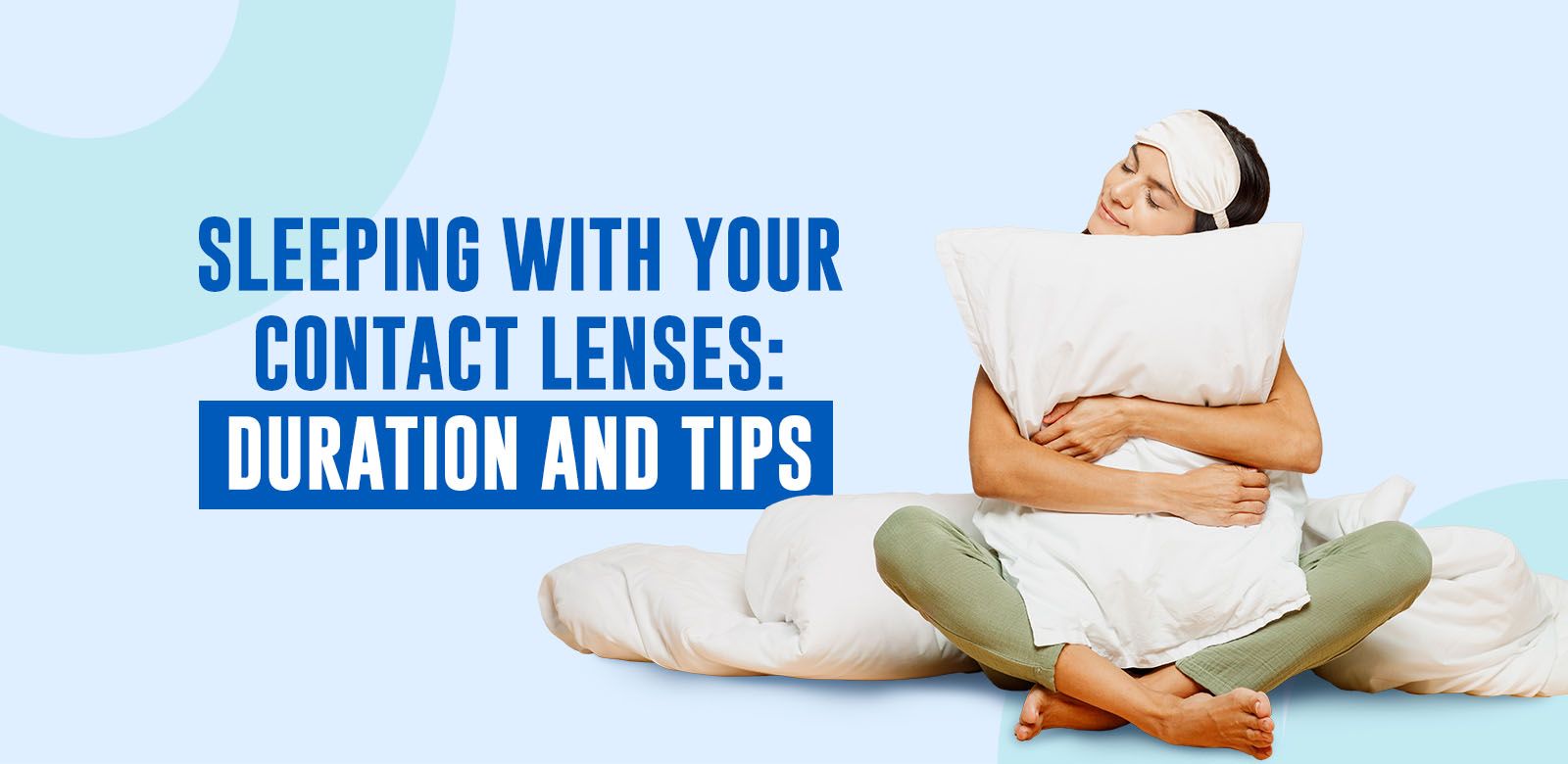

Have you ever wondered if you could fall asleep with your contact lenses in after an exhausting day? This is a common question within our community. Since contact lenses are a convenient solution for correcting vision problems, why not keep them in at night?
Let's explore the best practices and recommendations for sleeping with your lenses and discover how long this is possible.
Types of contact lenses
There are mainly two types of contact lenses: those that need to be removed before sleeping and those that can be worn overnight.
Daytime wear lenses
Most contact lenses on the market are not designed to be worn while you sleep. They must be removed before bedtime to allow your eyes to breathe and recover. Contact lenses block some of the oxygen necessary for the health of your eyes. Sleeping with lenses can increase the risks of infections, eye irritations, and dryness.
Extended wear lenses: the solution for day and night wear
Lenses designed for extended periods, including overnight, are called continuous wear or night contact lenses. These lenses are made from materials highly permeable to oxygen, allowing your eyes to "breathe" even when you sleep.
However, it is crucial to consult your ophthalmologist before wearing these lenses, as they are not suitable for everyone. Your ophthalmologist will recommend the appropriate model and maximum wear duration.
List of products perfect for extended wear
-
Air Optix Night & Day Aqua: These lenses are designed for continuous wear for up to 29 nights, offering excellent oxygen permeability.
-
PureVision 2: Made from silicon hydrogel, they provide optimal comfort for continuous wear up to 29 nights.
-
Biofinity: Ideal for continuous wear for up to 7 nights, these lenses are made of silicone hydrogel for prolonged comfort.
Risks of sleeping with contact lenses not designed for overnight wear
Sleeping with lenses not designed for overnight use can lead to several eye health issues:
Eye infections
Contact lenses can trap bacteria and particles on the eye's surface, increasing the risk of infections like keratitis. This risk is particularly high if the lenses are not removed and cleaned regularly.
Corneal hypoxia
Eyes need oxygen to stay healthy, and sleeping with contact lenses can reduce the oxygen supply to the cornea, leading to corneal hypoxia. This can cause symptoms such as redness, discomfort, and, in severe cases, permanent vision damage.
Dry eyes
Contact lenses can absorb your eyes' natural tears, causing dryness. Sleeping with lenses can worsen this issue, making your eyes even drier and more irritated upon waking up.
Recommendations for wearing lenses during sleep
To minimize the risks associated with wearing lenses while sleeping, follow these tips:
-
Consult your ophthalmologist: Before deciding to sleep with your lenses, consult your ophthalmologist for personalized recommendations on which lenses to use.
-
Use extended wear lenses: If you wish to sleep with your lenses, opt only for lenses designed for extended wear.
-
Follow wear time guidelines: Even with extended wear lenses, follow the recommended wear times by the manufacturer and your ophthalmologist. Do not exceed the maximum continuous wear duration.
-
Maintain your lenses: Regularly clean and disinfect your lenses to reduce the risk of infections.
-
Listen to your body: If you experience discomfort, redness, or blurry vision, immediately remove your lenses and consult a healthcare professional.
Sleeping with contact lenses can be convenient, but it is essential to know the risks and closely follow your ophthalmologist's recommendations to protect your eye health.





